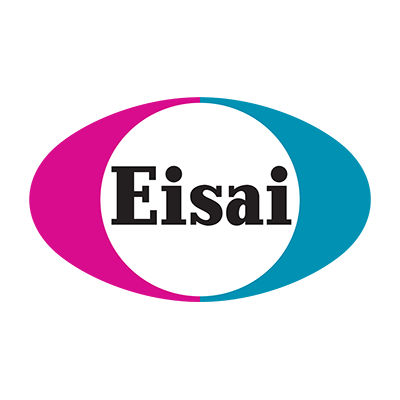预约演示
更新于:2025-05-16
AWZ-1066-S
更新于:2025-05-16
概要
基本信息
原研机构 |
非在研机构- |
权益机构- |
最高研发阶段临床前 |
首次获批日期- |
最高研发阶段(中国)- |
特殊审评- |
登录后查看时间轴
关联
1
项与 AWZ-1066-S 相关的临床试验NCT05084560
Development of AWZ1066S, a Small Molecule Anti-Wolbachia Candidate Macrofilaricide Drug
Lymphatic filariasis and onchocerciasis are a group of neglected tropical diseases caused by the transmission of worm larvae (microfilaria) by biting insects. Once a human is infected, the larvae mature into adult worms that release huge numbers of larvae into the lymphatics for 5-15 years. The larvae cause tissue damage resulting in the disabling diseases of elephantiasis (gross leg and scrotal swelling) and river blindness. These diseases affect 160 million people and are acknowledged major public health problems in the tropics. Current treatments mainly target the larvae but not the adult worms that live for years, meaning that repeated courses of treatment over many years are needed. These repeated courses are usually delivered at population level in the form of mass drug administration programmes.
For the adult worms to be able to grow, reproduce and infect more humans they are dependent on a bacterium which lives inside them. This bacterium (Wolbachia) is not naturally found in humans. Some drugs are able to target Wolbachia, however they are unsuitable for mass drug administration programmes because they have to be given for 4-6 weeks and cannot be used in children or pregnant women.
AWZ1066S is a novel drug developed in Liverpool that has been shown in experimental models to target Wolbachia and indirectly kill the adult parasitic worms after a 7 day course. After extensive safety testing in animals we are conducting a Phase 1, first in human study, to assess the safety, tolerability and pharmacokinetics of ascending single and multiple oral doses of AWZ1066S in healthy volunteers. The study is a single centre study, will last approximately 1 year and will take place in a dedicated Phase 1 trial unit. Depending on which group they are enrolled into, participants will take either one dose, two doses or seven doses and their involvement will last between 38 and 45 days. Participants will be closely monitored for adverse effects.
For the adult worms to be able to grow, reproduce and infect more humans they are dependent on a bacterium which lives inside them. This bacterium (Wolbachia) is not naturally found in humans. Some drugs are able to target Wolbachia, however they are unsuitable for mass drug administration programmes because they have to be given for 4-6 weeks and cannot be used in children or pregnant women.
AWZ1066S is a novel drug developed in Liverpool that has been shown in experimental models to target Wolbachia and indirectly kill the adult parasitic worms after a 7 day course. After extensive safety testing in animals we are conducting a Phase 1, first in human study, to assess the safety, tolerability and pharmacokinetics of ascending single and multiple oral doses of AWZ1066S in healthy volunteers. The study is a single centre study, will last approximately 1 year and will take place in a dedicated Phase 1 trial unit. Depending on which group they are enrolled into, participants will take either one dose, two doses or seven doses and their involvement will last between 38 and 45 days. Participants will be closely monitored for adverse effects.
开始日期2021-12-10 |
申办/合作机构 |
100 项与 AWZ-1066-S 相关的临床结果
登录后查看更多信息
100 项与 AWZ-1066-S 相关的转化医学
登录后查看更多信息
100 项与 AWZ-1066-S 相关的专利(医药)
登录后查看更多信息
6
项与 AWZ-1066-S 相关的文献(医药)2024-09-01·Clinical Pharmacology in Drug Development
A Phase 1, Randomized, Double‐Blind, Placebo‐Controlled, Single Ascending Dose Trial of AWZ1066S, an Anti‐Wolbachia Candidate Macrofilaricide
Article
作者: Moriyama, Tomoyuki ; Gusovsky, Fabian ; Bula, Marcin ; Fitzgerald, Richard ; Walker, Lauren ; Eraut, Nicola ; van der Velde, Jeannette ; Turner, Joseph D. ; Wang, Duolao ; Hong, Weiqian David ; Shinkyo, Raku ; Tripp, Karen ; Ward, Stephen A. ; O'Neill, Paul M. ; Devereux, Graham ; Alam, Muhammad Salman ; Taylor, Mark J.
Abstract:
AWZ1066S has been developed as a potential treatment for the neglected tropical diseases lymphatic filariasis and onchocerciasis. AWZ1066S targets the Wolbachia bacterial endosymbiont present in the causative nematode parasites. This phase 1, first‐in‐human study aimed to assess the safety and pharmacokinetics of AWZ1066S in healthy human participants. In a randomized double‐blind, placebo‐controlled, single ascending dose study, healthy adults received a single oral dose of AWZ1066S (or placebo) and were followed up for 10 days. The planned single doses of AWZ1066S ranged from 100 to 1600 mg, and each dose was administered to a cohort of 8 participants (6 AWZ1066S and 2 placebo). In total 30 people participated, 18 (60%) female, median age 30.0 years (minimum 20, maximum 61). The cohorts administered 100, 200, 300, and 400 mg of AWZ1066S progressed unremarkably. After single 700‐mg doses all 4 participants developed symptoms of acute gastritis and transient increases in liver enzymes. The severity of these adverse events ranged from mild to severe, with 1 participant needing hospital admission. Pharmacokinetic analysis indicated that AWZ1066S is rapidly absorbed with predictable pharmacokinetics. In conclusion, safety concerns prevented this study from reaching the human exposures needed for AWZ1066S to be clinically effective against lymphatic filariasis and onchocerciasis.
2024-09-01·TRENDS IN PARASITOLOGY
The long and winding road towards new treatments against lymphatic filariasis and onchocerciasis
Review
作者: Fischer, Peter U ; Pfarr, Kenneth ; Kazakov, Alexander ; Hübner, Marc P ; Specht, Sabine ; Hoerauf, Achim ; Risch, Frederic
Although lymphatic filariasis and onchocerciasis have been targeted for global elimination, these helminth infections are still a major public health problem across the tropics and subtropics. Despite decades of research, treatment options remain limited and drugs that completely clear the infections, and can be used on a large scale, are still unavailable. In the present review we discuss the strengths and weaknesses of currently available treatments and new ones in development. Novel candidates (corallopyronin A, DNDi-6166, emodepside, and oxfendazole) are currently moving through (pre)clinical development, while the development of two candidates (AWZ1066S and ABBV-4083/flubentylosin) was recently halted. The preclinical R&D pipeline for filarial infections continues to be limited, and recent setbacks highlight the importance of continuous drug discovery and testing.
2023-01-01·Frontiers in microbiology
Dirofilariasis mouse models for heartworm preclinical research.
Article
作者: Dagley, J L ; Gusovsky, F ; McCall, J W ; Moorhead, A ; Fricks, C ; Steven, A ; Taylor, M J ; O'Neill, P ; Ward, S A ; Marriott, A E ; Campbell, E J ; Wilson, C M ; Hong, W D ; DiCosty, U ; McCall, S ; Turner, J D ; Mansour, A ; Hegde, S
Introduction:
Dirofilariasis, including heartworm disease, is a major emergent veterinary parasitic infection and a human zoonosis. Currently, experimental infections of cats and dogs are used in veterinary heartworm preclinical drug research.
Methods:
As a refined alternative in vivo heartworm preventative drug screen, we assessed lymphopenic mouse strains with ablation of the interleukin-2/7 common gamma chain (γc) as susceptible to the larval development phase of Dirofilaria immitis.
Results:
Non-obese diabetic (NOD) severe combined immunodeficiency (SCID)γc-/- (NSG and NXG) and recombination-activating gene (RAG)2-/-γc-/- mouse strains yielded viable D. immitis larvae at 2-4 weeks post-infection, including the use of different batches of D. immitis infectious larvae, different D. immitis isolates, and at different laboratories. Mice did not display any clinical signs associated with infection for up to 4 weeks. Developing larvae were found in subcutaneous and muscle fascia tissues, which is the natural site of this stage of heartworm in dogs. Compared with in vitro-propagated larvae at day 14, in vivo-derived larvae had completed the L4 molt, were significantly larger, and contained expanded Wolbachia endobacteria titres. We established an ex vivo L4 paralytic screening system whereby assays with moxidectin or levamisole highlighted discrepancies in relative drug sensitivities in comparison with in vitro-reared L4 D. immitis. We demonstrated effective depletion of Wolbachia by 70%-90% in D. immitis L4 following 2- to 7-day oral in vivo exposures of NSG- or NXG-infected mice with doxycycline or the rapid-acting investigational drug, AWZ1066S. We validated NSG and NXG D. immitis mouse models as a filaricide screen by in vivo treatments with single injections of moxidectin, which mediated a 60%-88% reduction in L4 larvae at 14-28 days.
Discussion:
Future adoption of these mouse models will benefit end-user laboratories conducting research and development of novel heartworm preventatives via increased access, rapid turnaround, and reduced costs and may simultaneously decrease the need for experimental cat or dog use.
1
项与 AWZ-1066-S 相关的新闻(医药)2024-02-18
·精准药物
2023年11月25日,印度国家药学教育与研究学院的Ayan Acharya等人在Drug Discovery Today发表文章,Molecular Medicinal Insights into Scaffold Hopping-Based Drug Discovery Success,介绍了如何通过骨架跃迁策略探索成药空间、发现潜在药物分子,并通过一系列具体案例进行了详细阐述。 01背景骨架跃迁(scaffold hopping)是一种广泛应用于学术和工业界的药物改造策略,由Gisbert Schneider于1999年提出。该策略着重于对化合物的母核结构进行改造,以优化分子的理化性质、药效学(PD)性质、药代动力学(PK)性质等。骨架跃迁还被称为先导跃迁(lead hopping)、骨架搜索(scaffold searching)和骨架变形(scaffold morphing)。得益于近年来有机合成方法学和计算机科学的快速发展,骨架跃迁类似物的合成和理性设计变得更加高效和可靠,这对于药物研发至关重要。目前,许多以上市药物、临床候选药物、临床前化合物和天然产物为起点设计的骨架跃迁类似物已获得美国食品药品监督管理局(FDA)的批准,并正在进行临床试验。02骨架跃迁策略的分类1. 杂环替换(Heterocycle Replacement, 1°骨架跃迁)是最简单的骨架跃迁形式,它在所连接的官能团和药效团基本不变的情况下对环状母核进行替换(图1a)。这种策略可在保持关键的配体-靶点相互作用不变的同时,获得新的化学实体,并优化分子的理化性质和PK性质。图1. 骨架跃迁策略的四种形式:杂环替换(a);开环闭环(b);肽类模拟(c);拓扑跃迁(d)2. 开环闭环(Ring Opening and Closure, 2°骨架跃迁)通过环的开合变化来构建全新骨架(图1b)。闭环策略可以通过减少不必要的构象柔性来降低化合物的脱靶效应,而开环策略则通过增加构象柔性使化合物更好地与靶点结合。这种策略通过改变自由旋转键的数量,来影响结合熵、溶解性、透膜性、药物吸收等性质,可用于改善化合物的类药性。3. 肽类模拟(Pseudopeptides and Peptidomimetics, 3°骨架跃迁)通过将肽类分子中的代谢软点(metabolic soft spots)替换为非肽结构,以及利用小分子来模拟活性肽中的结构特征(图1c),从而在保持关键药效团的情况下改善肽类药物的代谢稳定性和生物利用度,以提高肽类药物的临床研究成功率。4. 拓扑跃迁(Topology or Shape-Based Scaffold Hopping, 4°骨架跃迁)在保持与原始分子相似的结合特征、3D形状和静电性质的同时,对原始分子的部分或整体结构进行大幅改变,产生全新的分子骨架(图1d)。这些新的分子骨架主要通过计算机辅助设计生成,因此该策略有时被称为基于结构的虚拟筛选(structure-based virtual screening)。由于化学结构发生大幅改变,生成分子的目标性质往往无法满足预期,基于拓扑跃迁发现的药物相对有限。03代表性案例1. 利用杂环替换策略发现抗丝虫药物AWZ1066S通过对10,000种化合物进行抗沃尔巴克氏体(Wolbachia)活性筛选,研究人员发现了一系列噻吩并嘧啶母核的活性化合物(图2)。其中,AWB124 (Vd) 表现出较好的抗沃尔巴克氏体活性,并被选为先导化合物进行进一步优化。通过用喹唑啉环替换AWB124中的噻吩并嘧啶母核,得到了AWB158 (Ve)。尽管AWB158的水溶性和人微粒体清除率有所改善,但其抗沃尔巴克氏体活性显著降低。在后续优化中,将AWB158的喹唑啉母核替换为8-氮杂喹唑啉,并在4位取代基的苯环上引入一个N原子,同时将2位的取代基替换为(S)-2-甲基吗啉,最终获得了化合物AWZ1066S (Vf)。与AWB158相比,AWZ1066S在体外对沃尔巴克氏体的活性和水溶性都显著增强,且人微粒体清除率得以保持。在针对不同丝虫感染的临床研究中,通过口服给药,AWZ1066S能够清除超过90%的沃尔巴克氏体,并持续抑制微丝蚴(丝虫的幼虫)的产生。因此,AWZ1066S被认定为first-in-class抗沃尔巴克氏体药物,能够高效且特异性地清除沃尔巴克氏体。目前,AWZ1066S作为抗沃尔巴克氏体/大丝虫的候选药物已开展一期临床研究(NCT05084560)。图2. 基于杂环替换骨架跃迁策略发现抗丝虫药物AWZ1066S2. 利用开环闭环策略发现AKT抑制剂NTQ1062Ipatasertib (IVf,GDC-0068)是一种可口服的选择性、ATP竞争性AKT抑制剂,用于治疗转移性去势抵抗性晚期前列腺癌。为了改善GDC-0068的PK性质并进一步提高活性,研究人员参考了GDC-0068与AKT蛋白的晶体复合物结构(PDB ID: 4EKL),采取了多种开环闭环的骨架跃迁策略对GDC-0068进行改造(图3)。通过“剪裁缝合”的开环闭环策略,将GDC-0068的五元环中的R-CH(OH)-R替换为RCONH-R,从而扩环并占据了M227附近的空腔,环酰胺中的NH与E228主链上的C=O形成氢键相互作用,所得化合物IVg在AKT抑制活性上略有提升,但体内活性和PK性质较差。随后,通过闭环策略在IVg的哌嗪环上引入环丙基得到NTQ1062(IVh),NTQ1062对AKT的抑制活性进一步提升(这可能是由于环丙基与M281侧链的S原子形成了S-π相互作用),同时其PK性质显著改善。目前NTQ1062正在进行一期临床研究(CTR20211999),用于治疗晚期恶性实体瘤。图3. 基于开环闭环策略发现AKT抑制剂NTQ10623. 利用肽类模拟策略发现SARS-CoV-2 Mpro抑制剂NirmatrelvirPaxlovid 是辉瑞公司开发的一种联合用药方案,包括Nirmatrelvir(IIh)和利托那韦(Ritonavir)两种活性成分。该方案于2021年获得FDA紧急使用授权批准,成为首个口服COVID-19治疗方案。鉴于SARS-CoV-2和SARS-CoV-1的Mpro在氨基酸序列上具有96%的相似性,辉瑞公司以SARS-CoV-1 Mpro抑制剂PF-00835231(IIg)为改造的起点,开发SARS-CoV-2 Mpro(以下简称Mpro)抑制剂(图4)。PF-00835231对Mpro表现出良好的抑制活性(Ki = 0.271 nM),但由于分子具有许多氢键供受体和较大的极性表面积(PSA),导致PF-00835231的成药性较差。为了克服这些问题,研究人员采用肽类模拟策略,在亮氨酸部分引入了偕二甲基双环结构,以模拟亮氨酸侧链与S2口袋的疏水相互作用,引入了三氟乙酰胺基以保持分子与蛋白间的关键氢键相互作用,并用氰基替换α-羟甲基酮结构来与C145形成共价相互作用,最终得到Nirmatrelvir。Nirmatrelvir的被动吸收渗透性和口服生物利用度显著改善,同时保持了对Mpro的抑制活性。由于Nirmatrelvir易受到CYP酶的代谢,辉瑞公司开发了其与CYP3A4酶抑制剂利托那韦的联合用药方案,用于治疗SARS-CoV-2感染。图4. 基于肽类模拟策略发现抗SARS-CoV-2药物Nirmatrelvir4. 利用拓扑跃迁策略发现新型BCL-xl抑制剂在分析了ABT-737与BCL-xl的晶体复合物结构之后,罗氏公司的研究团队认为,分子与蛋白质之间形成的π-π相互作用网络是保持结合活性的关键因素(图5)。图5. 基于拓扑跃迁策略发现新型BCL-xl抑制剂。ABT-737与BCL-xl的晶体复合物结构(PDB:2YXJ)(a);ABT-737(b)和IXc(c)的结构式以及分子中关键拓扑结构的三维模型他们利用剑桥晶体结构数据库(CSD)检索了具有与IXb相似拓扑结构的化合物,这些化合物具有类似的苯环平面间夹角和苯环中心间距。在这一过程中,他们发现了化合物IXd。通过将ABT-737的部分取代基团安装到IXd上,并进行了一系列的构效关系研究,研究人员最终发现了新型BCL-xl抑制剂IXc。04用于骨架跃迁策略的算法更复杂的骨架跃迁策略通常通过计算机辅助药物设计手段实现,这些基于药物化学数据集开发的算法不仅可以更广泛地应用于骨架跃迁策略,而且能很好地用于评价分子之间的相似性。MORPH可以基于化合物的结构式对芳环结构进行系统的杂环替换策略探索;CAVEAT可以根据化学键的方向自动检索与之匹配的分子骨架,从而简化酶抑制剂和活性分子的发现过程。通过采用更丰富的分子表征方式,并引入分子的三维几何形状、静电势能表面、疏水表面等信息,新的算法被开发出来。Cresset SparkTM通过多种力场寻找具有与阳性化合物类似力场特征的全新化合物;WHALES用于在合成化合物库中寻找与天然产物在原子分布、几何结构和电荷分布上相似,但在化学结构上更为简单的天然产物类似物;CATS可用于预测骨架跃迁产物的潜在作用靶点;SHOP能够在保持关键药效团的同时,对分子中指定的骨架进行替换,以生成潜在的活性分子;Recore通过其独特的“切断”策略构建分子片段库用于母核替换,并在分子生成时保持母核处于低能构象。05有机合成方法学赋能骨架跃迁有机合成化学领域的突破极大地便利了骨架跃迁产物的合成。例如,分子编辑技术可以直接对母核进行修饰,实现原子的插入、删除、交换等操作。Levin课题组通过光化学的手段实现了基于碳原子删除的杂环替换骨架跃迁策略,该方法适用于多种氮杂芳环骨架(图5a)。在这种方法中,喹啉N-氧化物在紫外光的照射下生成3,1-苯并氧氮杂䓬中间体,进而在酸性条件下重排,生成吲哚类化合物。该方法已成功应用于抗哮喘药Montelukast衍生物和HMG-CoA还原酶抑制剂Pitavastatin衍生物的合成。Levin课题组还开发了基于碳原子插入的杂环替换骨架跃迁策略,用于从吡唑和吲唑基化合物合成嘧啶和喹唑啉类似物(图5b)。通过使用氯二氮丙啶类化合物作为碳原子来源,实现了杂环的扩张,并利用该方法合成了非甾体抗炎药物Tepoxalin的生物活性类似物。图6. 通过有机合成方法学实现骨架跃迁产物的合成。碳原子删除策略(a);碳原子插入策略(b)06总结和展望骨架跃迁策略在药物分子改造方面发挥着重要作用。从药物性质的角度来看,如果先导化合物表现出较差的ADMET和PK性质,骨架跃迁策略可以用于快速发现具有更优目标性质的分子;从合成角度来看,骨架跃迁策略有助于找到合成难度较低但活性相当的分子;从知识产权保护的角度来看,骨架跃迁策略提供了提高自身专利壁垒以及规避竞争对手专利覆盖范围的方法。因此,骨架跃迁是一种极具吸引力的策略,用于在有限的成药化学空间内实现分子新颖性。然而,如何理性地运用骨架跃迁策略以改善分子的目标性质,以及如何快速合成骨架跃迁产物,目前仍是一个挑战。解决这些问题将有助于开启药物化学研究的新时代。07全部案例1. Acharya, A.; Yadav, M.; Nagpure, M.; Kumaresan, S.; Guchhait, S. K. Molecular Medicinal Insights into Scaffold Hopping-Based Drug Discovery Success. Drug Discov. Today 2024, 29 (1), 103845. https://doi-org.libproxy1.nus.edu.sg/10.1016/j.drudis.2023.103845.2. Sun, H.; Tawa, G.; Wallqvist, A. Classification of Scaffold-Hopping Approaches. Drug Discov. Today 2012, 17 (7), 310–324. https://doi-org.libproxy1.nus.edu.sg/10.1016/j.drudis.2011.10.024.声明:发表/转载本文仅仅是出于传播信息的需要,并不意味着代表本公众号观点或证实其内容的真实性。据此内容作出的任何判断,后果自负。若有侵权,告知必删!长按关注本公众号 粉丝群/投稿/授权/广告等请联系公众号助手 觉得本文好看,请点这里↓
生物类似药临床研究
100 项与 AWZ-1066-S 相关的药物交易
登录后查看更多信息
研发状态
10 条进展最快的记录, 后查看更多信息
登录
| 适应症 | 最高研发状态 | 国家/地区 | 公司 | 日期 |
|---|---|---|---|---|
| 丝虫性象皮病 | 临床1期 | 英国 | 2021-12-10 | |
| 丝虫性象皮病 | 临床1期 | 英国 | 2021-12-10 | |
| 盘尾丝虫病 | 临床1期 | 英国 | 2021-12-10 | |
| 盘尾丝虫病 | 临床1期 | 英国 | 2021-12-10 |
登录后查看更多信息
临床结果
临床结果
适应症
分期
评价
查看全部结果
| 研究 | 分期 | 人群特征 | 评价人数 | 分组 | 结果 | 评价 | 发布日期 |
|---|
No Data | |||||||
登录后查看更多信息
转化医学
使用我们的转化医学数据加速您的研究。
登录
或

药物交易
使用我们的药物交易数据加速您的研究。
登录
或

核心专利
使用我们的核心专利数据促进您的研究。
登录
或

临床分析
紧跟全球注册中心的最新临床试验。
登录
或

批准
利用最新的监管批准信息加速您的研究。
登录
或

特殊审评
只需点击几下即可了解关键药物信息。
登录
或

Eureka LS:
全新生物医药AI Agent 覆盖科研全链路,让突破性发现快人一步
立即开始免费试用!
智慧芽新药情报库是智慧芽专为生命科学人士构建的基于AI的创新药情报平台,助您全方位提升您的研发与决策效率。
立即开始数据试用!
智慧芽新药库数据也通过智慧芽数据服务平台,以API或者数据包形式对外开放,助您更加充分利用智慧芽新药情报信息。
生物序列数据库
生物药研发创新
免费使用
化学结构数据库
小分子化药研发创新
免费使用


